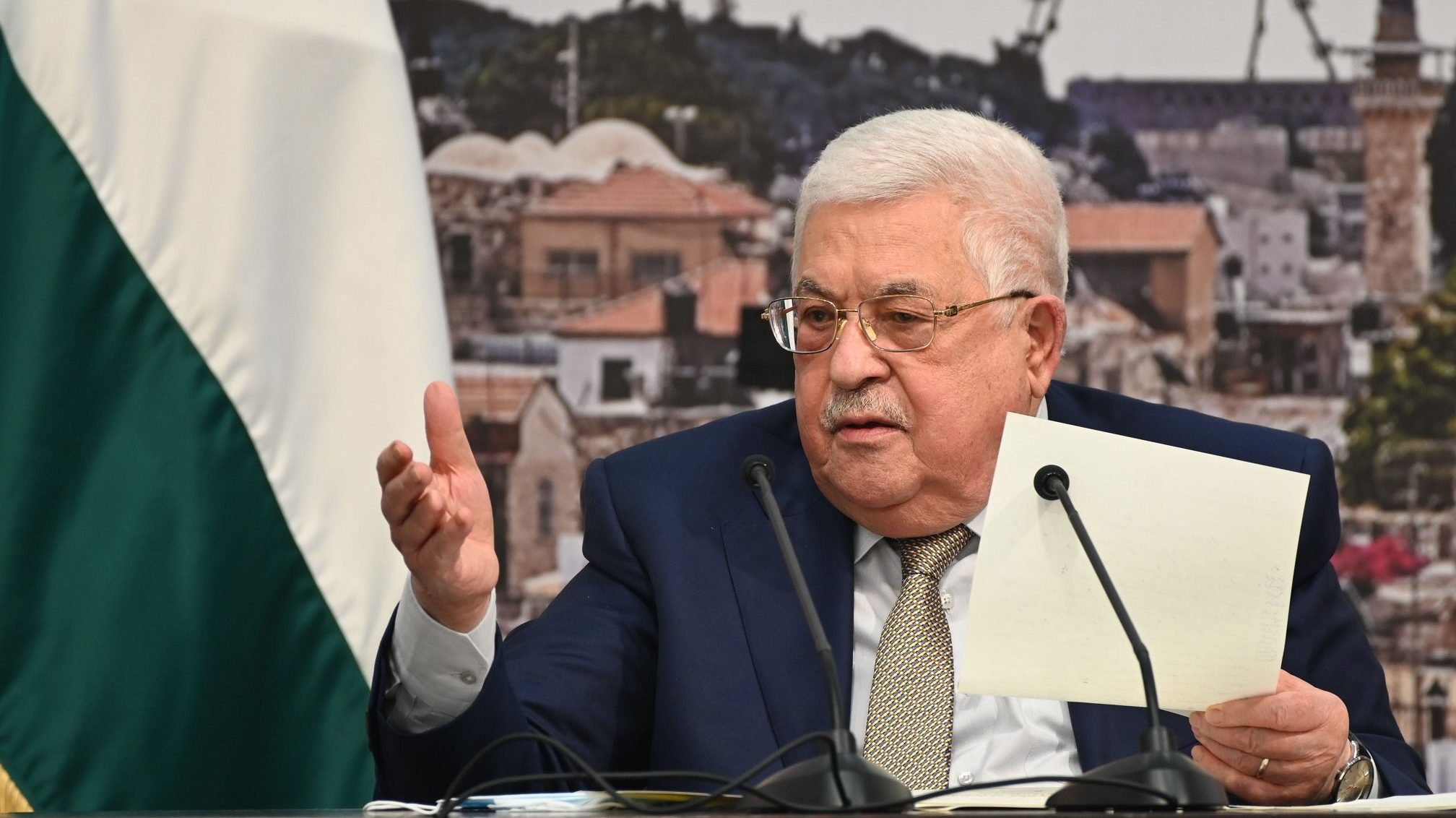Abbas’ Condemnation of Bnei Brak Terror Attack Unlikely To Calm Waters: Palestinian Politico
Israel worried PA president’s low popularity bodes ill for continued security cooperation
Palestinian Authority President Mahmoud Abbas released an unusual condemnation of Tuesday’s terror attack near Tel Aviv.
The gunman, Diaa Hamarsheh, 27, a Palestinian from Ya’bad in the West Bank, killed four civilians − two Israelis and two Ukrainian foreign workers − in the ultra-Orthodox city of Bnei Brak, and then proceeded to the adjoining suburb of Ramat Gan, where he fatally wounded a police officer and was slain himself.
It was the third attack in Israel in seven days, bringing the death toll to 11 victims and four terrorists. The first two attacks were carried out by Arab citizens of Israel inspired by ISIS.
The Palestinian Authority leadership remained silent after the first two attacks, but Abbas publically condemned the one on Tuesday.
“[The president] expressed his condemnation of the killing of Israeli civilians tonight, emphasizing that the killing of Palestinian and Israeli civilians only leads the situation to deteriorate,” Abbas’ office said in a statement.
Dimitri Diliani, spokesperson of the Democratic Reformist faction within Fatah, affiliated with Abbas rival Mohammed Dahlan (who is living in exile in Abu Dhabi), told The Media Line he believes the PA president is making an effort to defuse the tension.
“With the increase of tensions in the area, especially with the approach of Ramadan which coincides with the Jewish Passover and Christian Easter, tensions are very high around many issues, especially in Jerusalem,” Diliani said.
Abbas is trying to keep things from getting out of control, he explained, adding, “We are heading toward the possibility of a more violent month of Ramadan than last year.”
This holiday season, give to:
Truth and understanding
The Media Line's intrepid correspondents are in Israel, Gaza, Lebanon, Syria and Pakistan providing first-person reporting.
They all said they cover it.
We see it.
We report with just one agenda: the truth.


That is why Abbas felt compelled to condemn the attack, Diliani said.
Ramadan will begin on Saturday or Sunday evening, depending on the sighting of the crescent moon.
Yohanan Tzoreff, a senior research fellow at the Institute for National Security Studies at Tel Aviv University and an expert on Palestinian affairs, told The Media Line Abbas had no choice but to condemn the latest attack, because he realized the situation was going to get worse. “It’s a big danger not only for Israel but also to his [Palestinian] Authority.”
Tzoreff added that Abbas was known to be against violence.
“This has been the case since before he became the president of the Palestinian Authority [in 2005]. It is true that his relationship with the Israeli government has been very bad for the last five or six years, which prevented him from condemning every terror attack that took place, but everybody knows who Abu Mazen [Abbas] is and that he is truly against all these matters,” he continued.
Diliani, however, is skeptical about the president’s chances of keeping a lid on violence.
“Mahmoud Abbas is trying to help Israel by defusing the tension through his statement. However, I don’t think it’s effective. I mean, for example, according to the latest polls, 79% of the Palestinian people want him to resign,” he said. “I don’t think the condemnation carries a lot of weight anyway.”
Diliani says nobody talks about the condemnation. “President Abbas has pushed himself so far away from the Palestinian people and even his own Fatah movement that whatever he says is totally irrelevant,” he argued.
Tzoreff said Palestinians were criticizing the president’s statement.
“They don’t like what he’s saying because the atmosphere is not as it was before. They are saying that Abbas is neglecting the Palestinian issue,” Tzoreff continued.
Abbas’ popularity among the Palestinians is very low, and his statement will cause it to further decline, the researcher said.
However, he believes Abbas won’t resign anytime soon.
“Arab leaders, and now we can also say the Palestinian leaders, don’t usually leave their positions on their own. They stay there till the last day. Nobody will force him to leave his position, but he will become weaker and weaker,” said Tzoreff.
This is a big problem for Israel, and for the Palestinians who are responsible for security in the area, he added. It puts at risk the cooperation and coordination that exists between the PA forces and Israel, which currently contributes greatly to the area’s security.
“The Palestinian security system has a good relationship with Israel, and without the leadership of their president, I’m not sure that they will be able to continue to do their job; it’s not so easy,” he said.
“The situation now is not so good. Abu Mazen’s popularity is low, he lost a lot of popularity during the last year, and we [Israelis] who are following his situation are very worried,” Tzoreff said.

